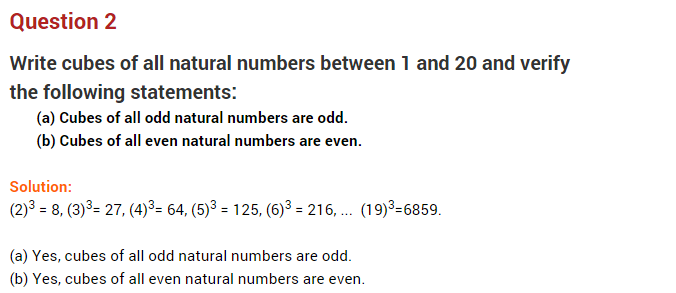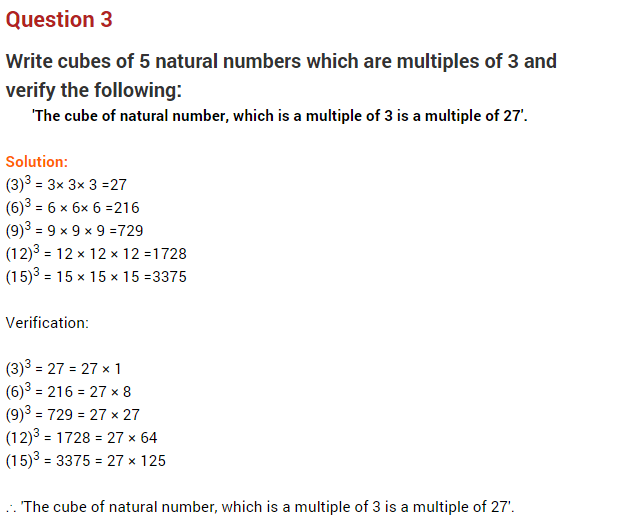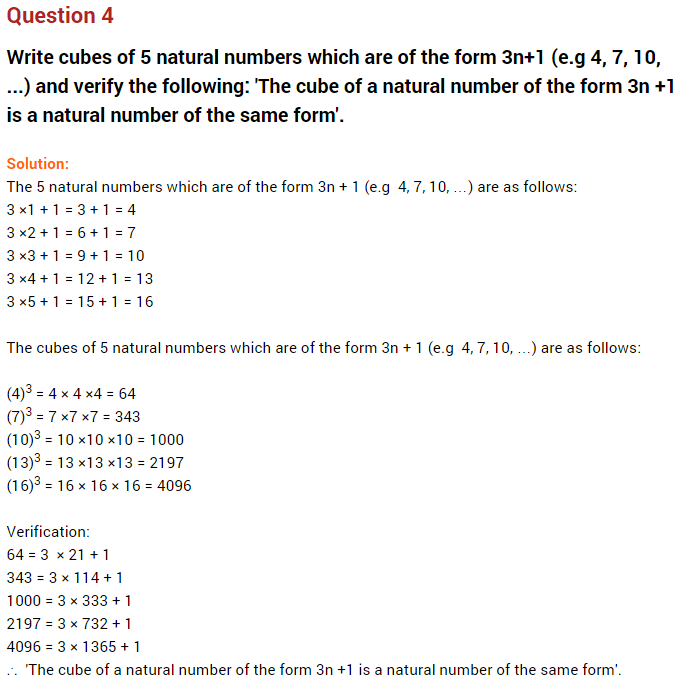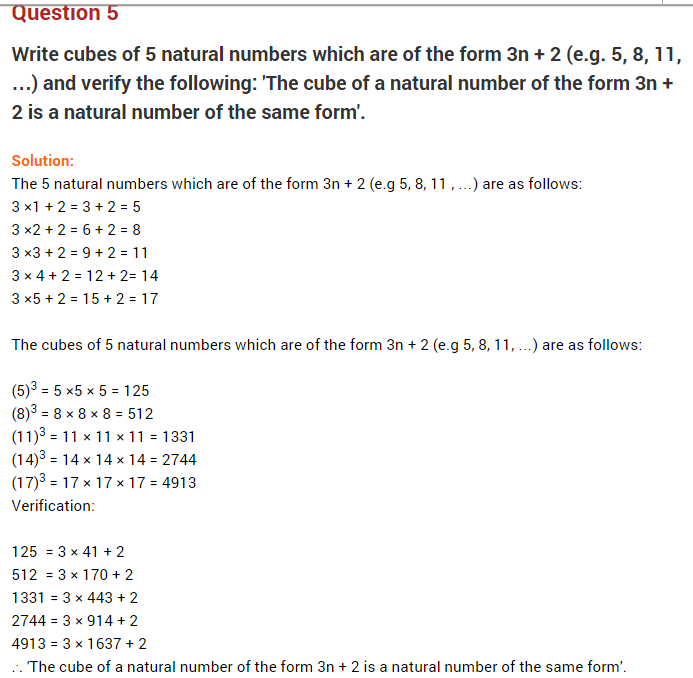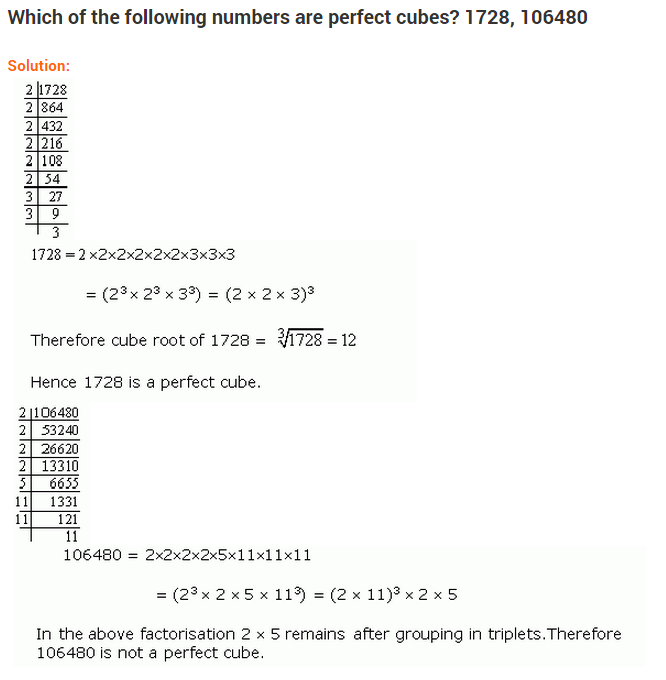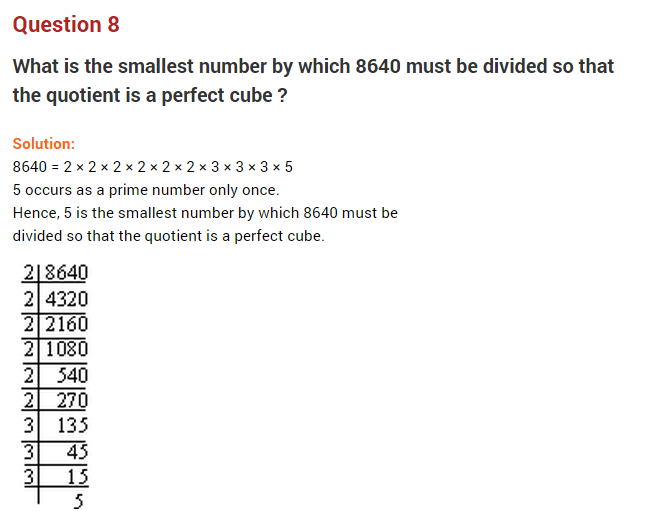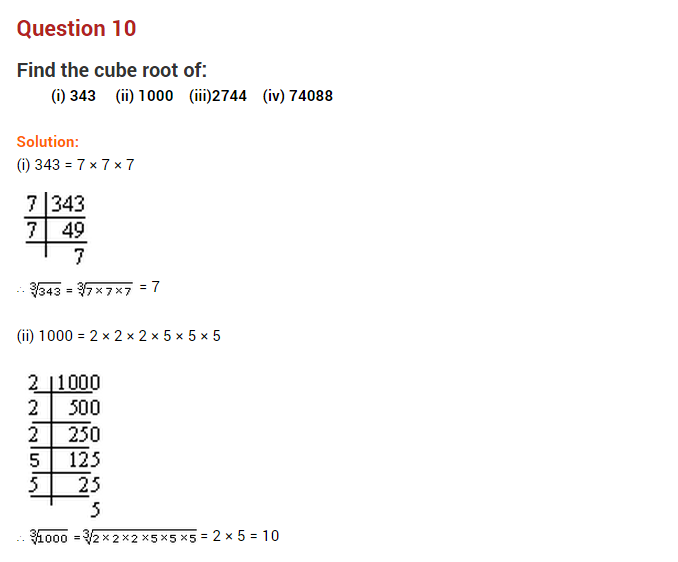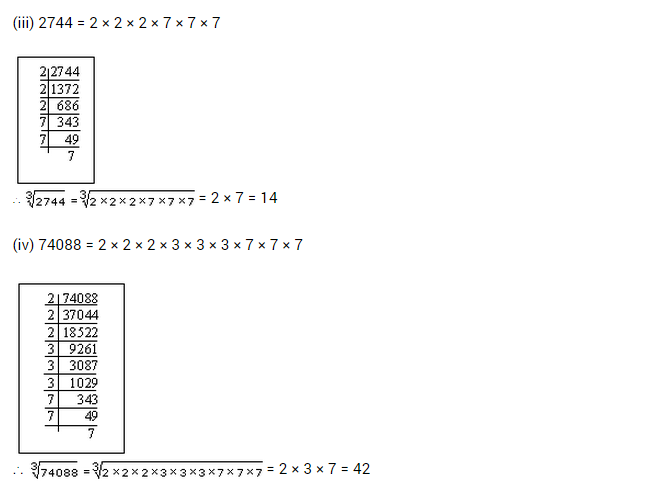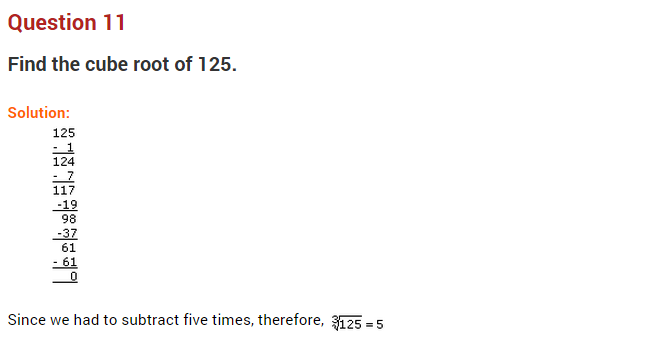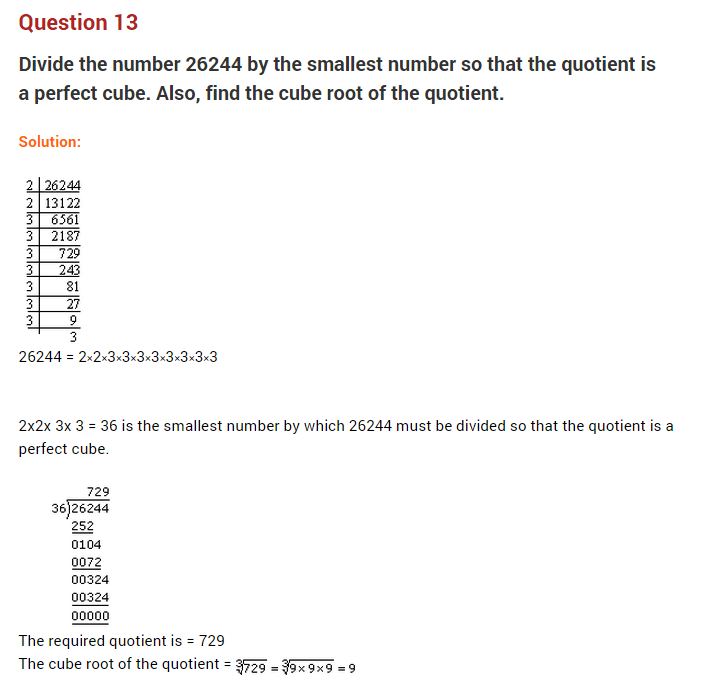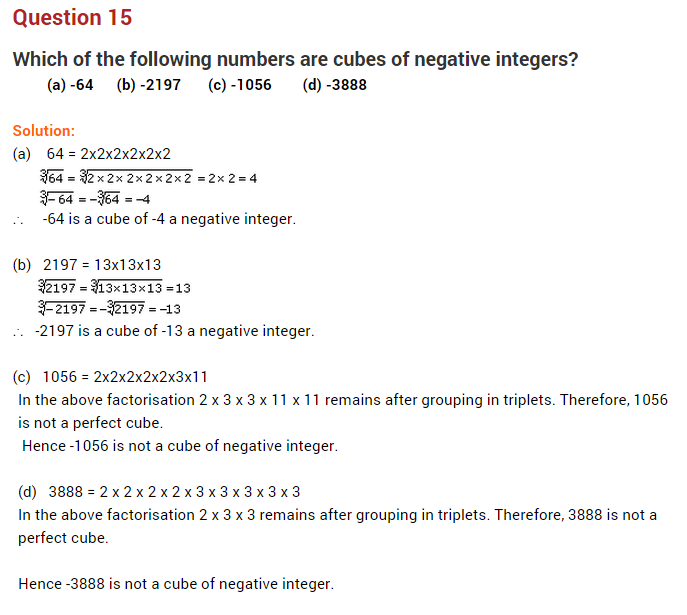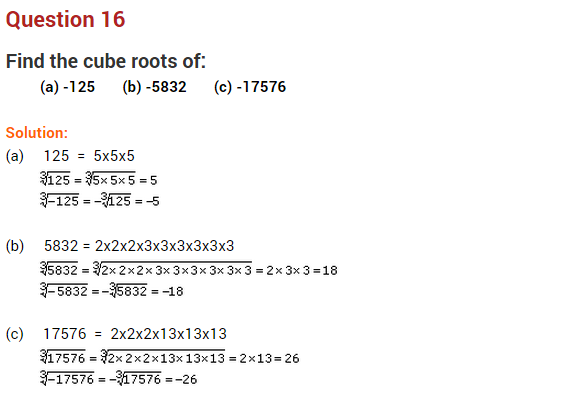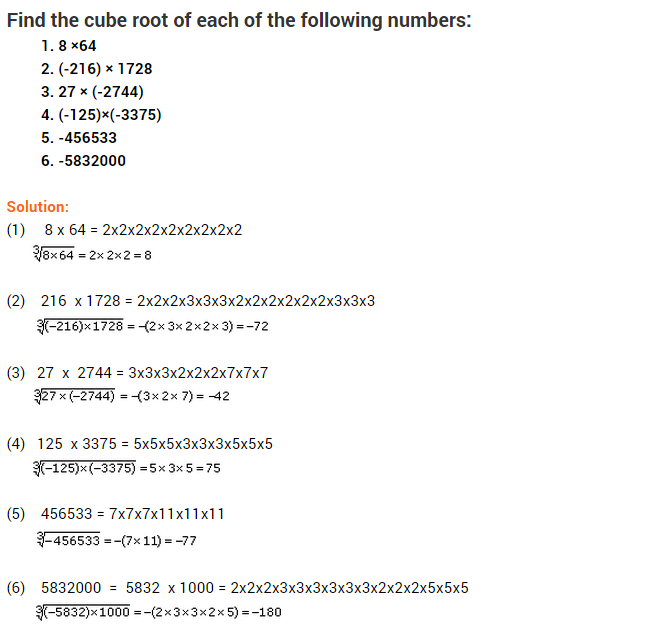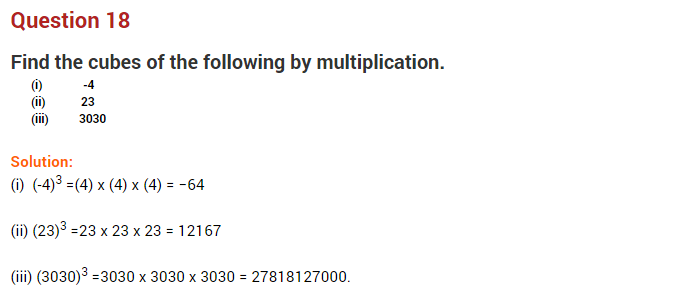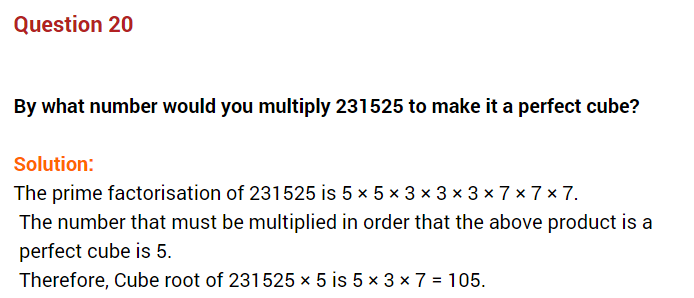Cubes and Cube Roots Class 8 Extra Questions Maths Chapter 7
Extra Questions for Class 8 Maths Chapter 7 Cubes and Cube Roots
Cubes and Cube Roots Class 8 Extra Questions Very Short Answer Type
Question 1.
Find the cubes of the following:
(a) 12
(b) -6
(c) \(\frac { 2 }{ 3 }\)
(d) \(\frac { -5 }{ 6 }\)
Solution:

Question 2.
Find the cubes of the following:
(a) 0.3
(b) 0.8
(c) .001
(d) 2 – 0.3
Sol.
(a) (0.3)3 = 0.3 × 0.3 × 0.3 = 0.027
(b) (0.8)3 = 0.8 × 0.8 × 0.8 = 0.512
(c) (0.001)3 = (0.001) × (0.001) × (0.001) = 0.000000001
(d) (2 – 0.3)3 = (1.7)3 = 1.7 × 1.7 × 1.7 = 4.913
Question 3.
Is 135 a perfect cube?
Solution:
Prime factorisation of 135, is:
135 = 3 × 3 × 3 × 5
We find that on making triplet, the number 5 does not make a group of the triplet.
Hence, 135 is not a perfect cube.

Question 4.
Find the cube roots of the following:
(a) 1728
(b) 3375
Solution:


Question 5.
Examine if (i) 200 (ii) 864 are perfect cubes.
Solution:
(i) 200 = 2 × 2 × 2 × 5 × 5
If we form triplet of equal factors, the number 2 forms a group of three whereas 5 does not do it.
Therefore, 200 is not a perfect cube.

(ii) We have 864 = 2 × 2 × 2 × 2 × 2
If we form triplet of equal factors, the number 2 and 3 form a group of three whereas another group of 2’s does not do so.
Therefore, 864 is not a perfect cube.

Question 6.
Find the smallest number by which 1323 may be multiplied so that the product is a perfect cube.
Solution:
1323 = 3 × 3 × 3 × 7 × 7
Since we required one more 7 to make a triplet of 7.
Therefore 7 is the smallest number by which 1323 may be multiplied to make it a perfect cube.

Question 7.
What is the smallest number by which 2916 should be divided so that the quotient is a perfect cube?
Solution:
Prime factorisation of
2916 = 2 × 2 × 3 × 3 × 3 × 3 × 3 × 3
Since we required one more 2 to make a triplet
Therefore, the required smallest number by which 2916 should be divided to make it a perfect cube is 2 × 2 = 4, i.e., 2916 ÷ 4 = 729 which is a perfect cube.

Question 8.
Check whether 1728 is a perfect cube by using prime factorisation. (NCERT Exemplar)
Solution:
Prime factorisation of 1728 is
1728 = 2 × 2 × 2 × 2 × 2 × 2 × 3 × 3 × 3
Since all prime factors can be grouped in triplets.
Therefore, 1728 is a perfect cube.
Question 9.
Using prime factorisation, find the cube root of 5832. (NCERT Exemplar)
Solution:

Question 10.
![]()
Solution:

Cubes and Cube Roots Class 8 Extra Questions Short Answers Type
Question 11.

Solution:


Question 12.
Find the cube roots of
(i) 4\(\frac { 12 }{ 125 }\)
(ii) -0.729
Solution:

Question 13.
Express the following numbers as the sum of odd numbers using the given pattern

Solution:

Question 14.
Observe the following pattern and complete the blank spaces.
13 = 1

Solution:



